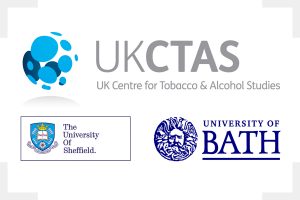 Project aim
Project aim
We aim to investigate how tobacco and alcohol taxation can be changed to improve health for all. We will talk with consumers, policymakers and experts and use survey and sales data to look at how tobacco and alcohol tax can work together: to change consumer behaviour and health; to benefit disadvantaged communities; and reduce NHS costs at a time of limited budgets.
Background
One in five adults in the UK smokes and one in five adults drinks alcohol in hazardous or harmful ways. These ‘lifestyle factors’ are leading causes of preventable illness and death, including from heart disease and cancers. Over 80,000 people a year die earlier than they should from diseases caused by drinking or smoking. For those who smoke and drink alcohol, the risk of developing these preventable diseases is even greater. This preventable human loss is compounded by an annual cost to the NHS of over £6 billion.
Design and methods
The project will involve:
- UK-focused rapid review of tobacco and alcohol tax policy options and interviews with taxation policymakers and experts that capture how they understand and prioritise options for tobacco and alcohol taxes.
- Analysis of social patterns in spending on tobacco and alcohol products using data from the nationally representative Living Costs and Food Survey.
- Analysis of how industry and consumers are likely to respond to tax changes using several years of data on retail prices and consumer spending.
- Population forecast to estimate how tax options might differ in their effects on consumer spending, health and health inequalities, costs of ill-health to the NHS, the tax revenue to government and outcomes to the wider economy in terms of sickness absence from work.
There is evidence that people buy less cigarettes and alcoholic drinks when the price increases. Health advocates are therefore calling for higher taxes and changes to tax structures on alcohol and tobacco products to encourage people to quit smoking and reduce their drinking. However, it is not clear what effect this would have on tax revenues and the wider economy. There is uncertainty about the effects of tax increases on smokers and drinkers who are on a low income or unemployed. Consumers can change their behaviour in response to changes in prices (for example, by switching to cheaper or illegal products). Uncertainty can also arise because tobacco and alcohol companies and retailers can alter prices to ensure some products stay affordable despite tax increases. The planned research will address these areas of complexity.
Public involvement and dissemination
Three established public involvement panels (smokers; general drinkers; and people recovering from alcohol dependence or their families); stakeholder and policymaker engagement; academic dissemination.
Please get in touch if you would like to hear more about the project. Email SYNTAX@sheffield.ac.uk
Project Co-ordinators
- Prof Alan Brennan
- Dr Duncan Gillespie
Stakeholder Interview Team
- Dr Jenny Hatchard
- Dr Penny Buykx
Others involved in the project
- Anna Gilmore, Professor of Public Health, Department for Health, University of Bath
- Petra Meier, Professor of Public Health, School of Health and Related Research, University of Sheffield
- John Holmes, Reader in Alcohol Policy, School of Health and Related Research, University of Sheffield, john.holmes@sheffield.ac.uk.
- Colin Angus, Senior Research Fellow, School of Health and Related Research, University of Sheffield, c.r.angus@sheffield.ac.uk.
- Rosemary Hiscock, Research Associate, Department for Health, University of Bath, r.hiscock@bath.ac.uk
- Robert Pryce, Research Associate, School of Health and Related Research, University of Sheffield, r.e.pryce@sheffield.ac.uk
- Luke Wilson, Research Associate, School of Health and Related Research, University of Sheffield, l.b.wilson@sheffield.ac.uk

 Project aim
Project aim